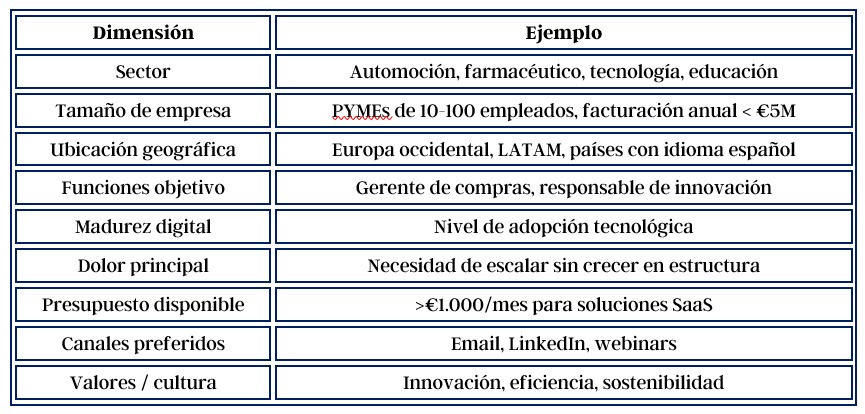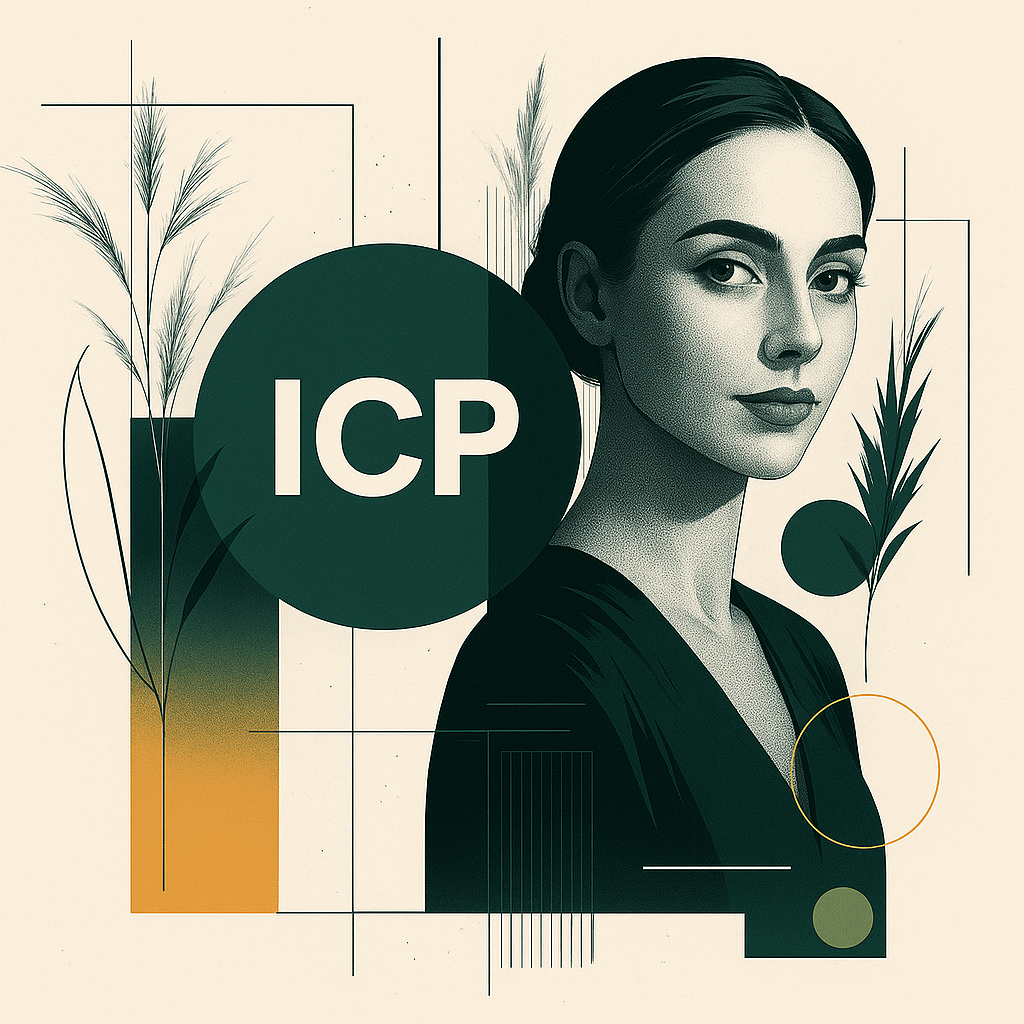One of the most common mistakes in B2B and B2C companies is trying to sell to everyone. This diffuse strategy not only dilutes sales and marketing efforts, but also makes customer acquisition more expensive and reduces long-term profitability.
Faced with this problem, an increasingly relevant tool has emerged: the Ideal Customer Profile (ICP).
Far from being an abstract segmentation exercise, the ICP is a strategic and operational tool that enables sales, marketing, product and customer service to be aligned towards the same objective: to attract, retain and build loyalty among those customers most likely to be successful and profitable.
What is an Ideal Customer Profile?
The Ideal Customer Profile (ICP) is a detailed representation of the type of customer who gets the most value from the product or service you offer and who, at the same time, represents a profitable and sustainable relationship for your business.
That is, it is not just someone who buys from you, but someone who:
- Repeated purchases
- Recommend your brand
- Low support cost
- Fits perfectly with your value proposition
- Helps you grow predictably
The ICP can represent an individual (B2C) or a company (B2B) and is built from actual data, observation and experience of the sales team.
Why is it important to have the ICP defined?
Having a clear ICP is not a luxury, it is a basic condition to scale efficiently. Here are some of the key advantages:
Increases marketing and sales efficiency.
Instead of dispersing resources on generic campaigns, you can focus on the customers who are most likely to convert.
2. Reduces acquisition cost
By focusing your message and targeting, qualified leads cost less and convert faster.
3. Improved loyalty
Ideal clients tend to be more loyal and less confrontational, because there is a natural fit with what you offer.
4. Optimizes product development
Knowing who you want to serve allows you to fine-tune the functionalities, prices and services you offer.
5. Facilitates message personalization
A well-defined ICP helps you speak in the right tone, channel and at the right time to generate real impact.
Are IPC, buyer persona and market segment the same thing?
No. Although related, they are not equivalent. While the segment defines a broad group and the buyer persona focuses on personal and behavioral details, the ICP combines both approaches with a clear focus on profitability and strategic fit.

How to define the Ideal Customer Profile?
There are multiple paths, but two complementary methodologies are the most widely used and effective:
1. Methodology based on analysis of current customers
This technique starts by analyzing your actual database to identify common patterns among your best customers.
Steps:
- Segment your customer base according to turnover, retention, satisfaction and recurrence.
- Collect key data: company size, industry, location, acquisition channels, average ticket.
- Identify common patterns: What characteristics do your most valuable customers share?
- Validate with sales and customer service: Does it match your daily experience?
- Constantly refine the profile: The ICP is dynamic, not a fixed snapshot.
Suggested tools:
- CRM(HubSpot, Salesforce, Pipedrive)
- BI platforms (Power BI, Tableau, Looker)
- Google Analytics Dashboards
- NPS and satisfaction surveys
2. Qualitative methodology based on interviews and focus groups.
Here the objective is to delve into the “why” of the ideal customer. Not just data, but motivations, emotions, challenges and values.
Steps:
- Choose your best current customers: the most loyal, happy and profitable ones.
- Design open-ended questions: What motivated you to choose us? What problem did we solve? What do you value most?
- Conduct recorded interviews or focus groups.
- Map emotional insights: frustrations, goals, language they use, organizational personality.
- Combine with quantitative data and generate a robust profile.
Useful tools:
- Typeform / Google Forms
- Zoom or Meet for recorded interviews
- Semantic text analysis platforms (such as Dovetail or Grain)
Key elements of a B2B ICP
A good ICP should include both firmographic (company data) and behavioral and cultural dimensions:

How to use the ICP once defined
An ICP is useless if it is not integrated into the actual operations of the company. Here are some key applications:
Marketing
- Segmentation of advertising campaigns
- Creation of customized content
- Inbound and SEO strategy focused on ICP
Sales
- Lead prioritization in CRM
- Adapted commercial arguments
- Predictive scoring tools
Product
- Development of functionalities according to ICP feedback
- Testing of new features with ideal customers
Overall strategy
- Identification of new markets
- Pricing decisions
- International business expansion
Common mistakes when building an ICP
- Based on intuition, not data
- Copy profiles from other companies
- Do not update over time
- Confusing it with the buyer persona
- Do not involve sales and product in the process
Remember: the ICP is a collaborative, strategic and living tool. It needs data, validation and periodic review.
How to evolve your ICP with business growth
As a company grows, its ICP also evolves:
- New solutions = new segments
- Entry into new markets = firmographic changes
- Commercial learning = profile adjustments
- Changes in the environment (regulation, technology, competition)
Therefore, it is recommended to review the ICP at least once a year, or every time a new product line is launched or a new market is entered.
The Ideal Customer Profile (ICP) is much more than a marketing definition. It is a critical business tool that enables:
- Become more efficient
- Communicate better
- Sell more and faster
- Loyalty with meaning
- Growing sustainably
In an environment where attention is scarce and competition is fierce, clearly understanding who your ideal customer is makes the difference between growing or stagnating.
Do you want to define your company’s ICP with a validated methodology?
At Smart Team we help you build, validate and activate your Ideal Customer Profile with real data, in-depth interviews and automation tools.
Contact us and let’s transform your strategy from the root.
Consultor de Marketing y SEO con más de 10 años de experiencia en optimización web y estrategias digitales. Ayudo a negocios locales, pymes y grandes empresas a mejorar su posicionamiento online, alcanzar sus objetivos de crecimiento y adaptarse a un mundo digital cada día más competitivo.



